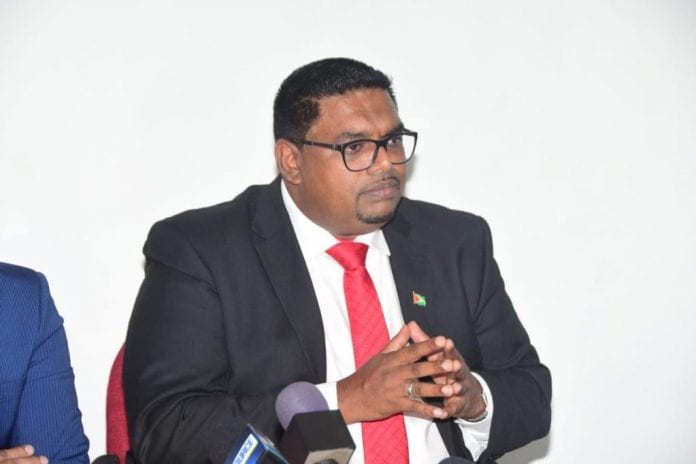Guyana President Dr Mohamed Irfaan Ali has called for urgent global action to halt biodiversity loss, warning that continued species decline threatens ecosystems, food security, medicine, and cultural heritage worldwide.
He made the appeal as the first sitting president from the Americas to appear on The Rest is Politics: Leading, one of the United Kingdom’s most popular political podcasts hosted by Alastair Campbell and Rory Stewart.
In a wide-ranging discussion with Campbell, President Ali highlighted that humanity has already lost 60 per cent of its biodiversity assets in the past 50 years, describing the crisis as “the new frontier that must be addressed.”
“If we continue to lose this biodiversity, we’re going to lose our ability to be food secure as a world because biodiversity is critically linked to food security,” he emphasised. “You and I and the world need to work on changing this.”
President Ali also stressed biodiversity’s importance for medicine, pharmaceuticals, indigenous knowledge, and sustaining life itself, while underscoring Guyana’s own commitment to environmental stewardship.
Campbell cited the recent discovery of two previously unknown bird species in Guyana by visiting British birdwatchers. President Ali described this as an example of the rewards of conservation. He also commended UK High Commissioner Jane Miller for her efforts to showcase Guyana’s natural beauty and deepen bilateral ties.
“We don’t want to find ourselves as part of the global problem. We want to use everything that is available before us to be part of the global solution,” he said.
President Ali’s advocacy follows Guyana’s hosting of the inaugural Global Biodiversity Alliance (GBA) Summit in June, where the Georgetown Declaration was endorsed and an ambitious roadmap unveiled to protect biodiversity, halt its loss, and accelerate nature-positive action. The summit brought together over 140 countries and organisations, including governments, Indigenous leaders, scientists, NGOs, financial institutions, youth representatives, and private sector actors, united in a shared commitment to safeguarding the planet’s natural wealth.

 6 months ago
21
6 months ago
21

 English (US) ·
English (US) ·